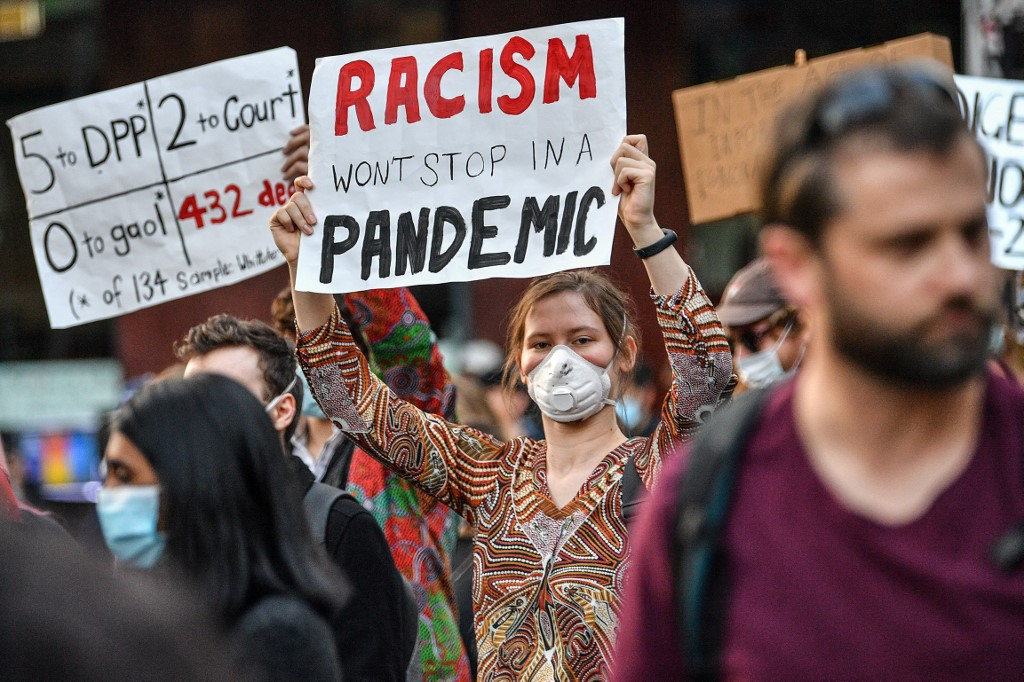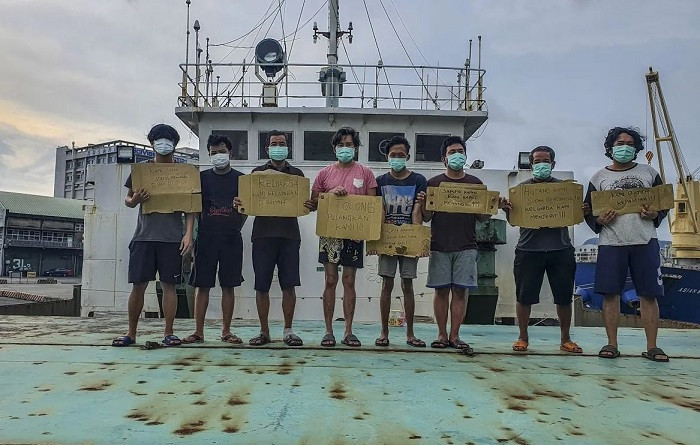Popular Reads
Top Results
Can't find what you're looking for?
View all search resultsPopular Reads
Top Results
Can't find what you're looking for?
View all search resultsPandemic racism and sexism in Australia: responses from Asian migrant women
Studies that address the intersection of pandemic-related racism and sexism are lacking and the experiences of Asian women have been neglected.
Change text size
Gift Premium Articles
to Anyone
Since the COVID-19 pandemic began in December 2019, studies have emerged on its effects on either racism or sexism.
Studies that address the intersection of pandemic-related racism and sexism are lacking and the experiences of Asian women have been neglected.
We interviewed 20 Asian women in late 2021 living in the second most populous state in Australia, Victoria to investigate how they have experienced racism and sexism in Australia during the pandemic. Participants were aged between 21 and 49 and were highly educated, having obtained a minimum of a tertiary level Diploma. They originated from New Zealand, UK, China, India, Malaysia, Nepal, Singapore, South Korea, Sri Lanka, Japan, Cambodia and Taiwan. All names used in this article are pseudonyms.
The participants had a wide range of experiences of racism and sexism in Australia, with some reporting no experience at all to some reporting physical attacks. 8 out of 20 participants experienced racially motivated verbal or physical abuse during the pandemic and 14 out of 20 participants discussed their experiences of sexism as Asian women living in Australia before and during the pandemic.
The study’s participants believed that women were targeted more than men by racists. This reflects the results of a 2021 survey on COVID-19 racism with more than 500 participants, which found that the largest number of respondents who reported experiencing racism identified as female (60.1 percent), in contrast to those who identified as male (34.1 percent).
What is particular about our findings, however, is that while our questions mainly focused on exploring participants’ experiences of racism during the pandemic, they frequently expressed their anxieties about racism as well as sexual harassment and gender-related violence.
For instance, Fiona (29, born in mainland China), told us that she encountered many more instances of harassment since the pandemic began. This included a man she hardly knew who called her frequently at midnight, social media messages from people who attempted to befriend her by claiming they spoke Chinese, and strangers trying to ‘pick her up’ by speaking in Chinese to her at bus stops.
She felt that she was targeted because ‘[men think it is] easy to pick up Chinese [girls] because they know that it’s likely that the Chinese girls [feel it would be rude to] say no’. These experiences made Fiona feel, in her own words, like an ‘item’: a ‘thing’ rather than a person, objectified and othered on a daily basis, causing her to fear men in general. Fiona, however, like other participants was unsure how best to respond to perpetrators; and participants frequently used the term’ weird’ to describe their experiences and the perpetrators, rather than racist and/or sexist.
Jane (26, born in mainland China) has become worried about being attacked by men due to several online and offline incidents since the pandemic began, including being shouted at by a stranger in public. She shared her intensified experiences of online harassment: ‘ [t]here's also been experiences online that make me feel strange and I don't know how to respond to them. So since the pandemic started, there have been times that like different people […] try to add me as friends on the social media platforms and also all of them, like most of them are men. And some people […] verbally harass me like, ‘Hey, beautiful’. That sort of creepy message. Or send you some porn pictures on the social media platforms.’
Diane (40s, Singapore-born), told us she also felt Asians look more vulnerable: ‘I'm not tall. I'm at 1.5 [metres]. I'm not even above 1.6, like more [relative to] the local context’. Diane also said that if a racist incident happened to her, she ‘will run because I'm so small,’ instead of confronting the perpetrator. Fiona told us how her youthful looking appearance can be a bane. She noted: ‘it is harder to stand up as a Chinese female’ who looks ‘young’ and ‘it's hard [to] be really projecting that kind of a strong image to fight back.’ Instead, she discussed how she needs to be ‘subtle’ and ‘leverage the resources available rather than [fight] just by yourself because [I] absolutely feel unsafe to fight by myself.’
Sunny (20s, Singapore-born) experienced a racist assault on the streets of Melbourne and said that stereotypes of Asian women being weak and submissive cause many to think they are ‘easier to attack’, because culturally they are often taught to ‘avoid confrontation’.
The interviewees’ experiences suggest that Asian women could be more vulnerable, or feel more vulnerable, to racism and sexism and that this made it more difficult for them to make sense of their experiences of harassment.
From this research, we found that:
- The lack of attention to Asian women’s pandemic-related experiences of racism obscures the fact that Asian women encounter racism more than their male counterparts;
- The lack of attention to how sexism intersects with Asian women’s experiences of racism makes it more difficult for them to make sense of their experiences and potentially preventing mistreatment from continuing; and
- Participants’ reflections show that there is potential for women of colour in general to form coalitions based on sharing intersectionality and this offers valuable insights for feminist and antiracist studies and initiatives.
A longer version of this article was published by Melbourne Asia Review, Asia Institute.











